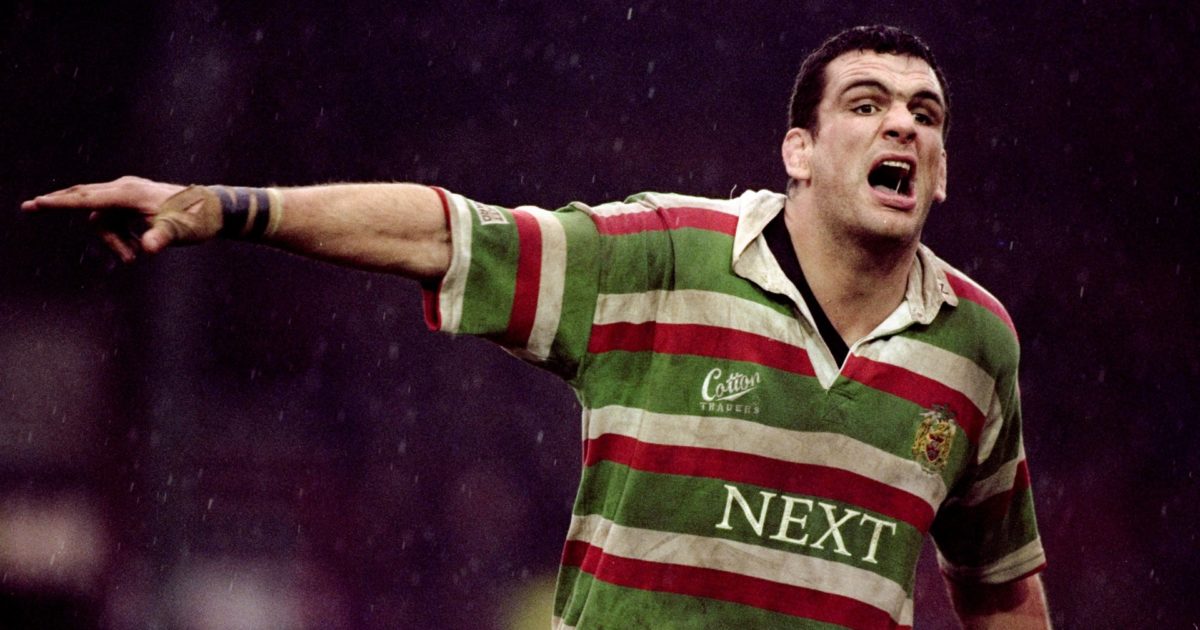The extraordinary day Martin Johnson missed the bus to a Twickenham cup final

Martin Johnson, the 2003 World Cup-winning England captain, has always been depicted as the ultimate professional, someone who never tolerated sloppy standards in pursuit of rugby greatness whether at Leicester, his club, or higher up the ladder in representative rugby.
His penchant for high standards was epitomised when he skippered the Lions to their epic 1997 Test series success in South Africa just two years after the Springboks had memorably won the 1995 World Cup.
However, Johnson didn’t always fully lead by example judging by the story surrounding the 1993 English Pilkington Cup win by Leicester over Harlequins which took place three weeks before the Lions opened that year’s tour to New Zealand, a trip that Johnson was called up for as a replacement for Wade Dooley.
The now 50-year-old, who went on to play in two of that three-Test Lions series versus the All Blacks, very nearly missed out on his opportunity to impress on English cup final day which at the time was the pinnacle of the club calendar.
Recalling the showpiece decider that Leicester won 23-16 versus Harlequins in front of 54,000 at Twickenham, Ian Smith, the then Tigers coach and father of ex-player Matt, revealed how Johnson had missed the team bus departure from Leicester that Saturday morning and only just made it to the hotel in London as the squad were about to depart for Twickenham.
Tigers bite back in the Burgess versus the Fords row https://t.co/dXLd7zvkbP
— RugbyPass (@RugbyPass) June 6, 2020
“They boys really, really did rise to the challenge although it didn’t get off too well,” said Smith in an interview with Leicester Tigers TV about the final. “We never used to travel down the night before. We used to travel on the coach on matchday, go to a hotel near to Twickenham and Heathrow and then get a police escort in.
“We got on the coach, we left the ground and then I’m informed by the team secretary, Tudor Thomas, that we had left a player behind, Martin Johnson. (There were) No mobile phones and thank God for Mr Johnson Snr, David Johnson, who drove his son down. I’m sat at the hotel and said: ‘We can’t wait any longer.’
“But luckily they arrived just as we are leaving to get to the ground. It was particularly important that he was there because he made an even bigger contribution than usual, managing to roll over for a try in the second half which effectively sealed the result.”
Current Leicester director of rugby Geordan Murphy also reflected on that final from 27 years ago which he watched on TV in Ireland, adding that travel to a match as a player in the old amateur era was often a problem.
“Martin Johnson recently recanted his story on how the famous try that took place from the tap penalty happened. Just to hear him talking about it with passion, that was one of the things that stuck with me.
“Actually, he got a little glass tankard on the back of winning the ’93 Pilkington Cup which his son broke about for weeks ago, so he wasn’t very happy about that. That’s why he started telling this story.
“It’s amazing what happened in those days. There is stories of other players: Jamie Hamilton, who went on to play a lot of rugby as a nine for Leicester, got his debut on the wing at Bath when one of the Underwood boys got stuck in traffic and couldn’t get out.
“Obviously we didn’t have an extensive squad (at the time), so he ended up playing on the wing and went on to play a lot for Tigers. Slightly different these days, but in the 90s it was very much just make your own way there and the amateur era was still in full swing.”











































